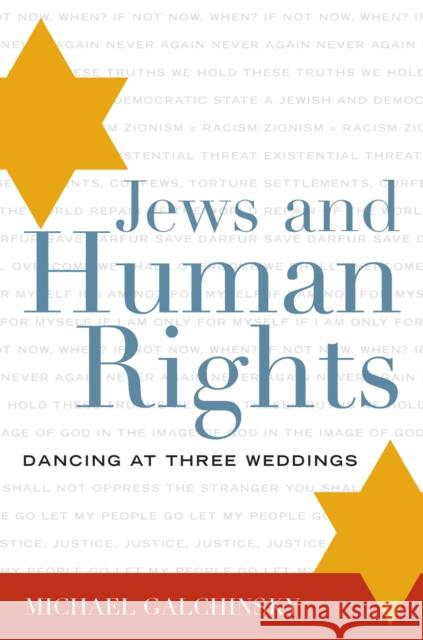Jews and Human Rights: Dancing at Three Weddings » książka
Jews and Human Rights: Dancing at Three Weddings
ISBN-13: 9780742552678 / Angielski / Miękka / 2007 / 368 str.
The history of human rights is intricately intertwined with the history of Jews. Drawing inspiration from their tradition and history, Jews have played a role in the human rights drama as victims, advocates, violators, and judges. Whether working to free persecuted Jews, prevent and intervene in genocides, defend Israel in human rights forums, or strengthen Israel's democracy, Jews have stood for_and stood up for_human rights. In Jews and Human Rights: Dancing at Three Weddings, Michael Galchinsky states that Jews around the world have tried simultaneously to 'dance at three weddings, ' celebrating their commitments to international human rights, Jewish nationalism, and domestic civil rights. After World War II, all three of these commitments seemed to be aligned, but now many Jews perceive them as distinct, or even opposed. Michael Galchinsky investigates the contributions of Jewish non-governmental organizations (NGOs) in the formation of international human rights, analyzing how they responded to the emerging tensions among their political commitments. He explores the cooperation and conflict among elite and grassroots organizations, the relationships among Jewish governmental officials and Jewish human rights activists, and examines the goals, strategies, and scope of Jewish human rights activism. Making extensive use of previously unknown archival documents and interviews with key activists, Galchinsky recounts how Jews' initial optimism about human rights turned to pessimism and ambivalence--and argues that a reverse process may still be possible. Jews and Human Rights: Dancing at Three Weddings is intended for scholars, students and general readers of: modern Jewish history, Israeli international/transnational studies, human rights activists, diplomats, and international lawyers, history and politics, international law, UN history, cultural sociology, and genocide studies.











